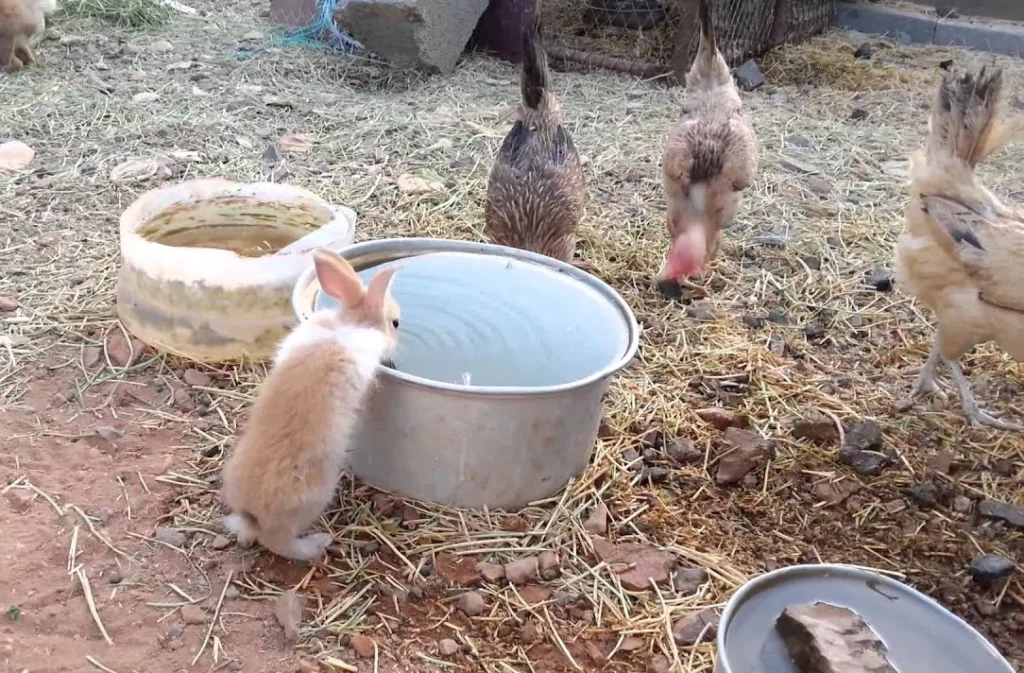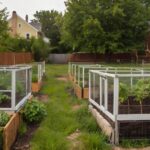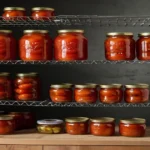Let me tell ya starting a backyard animal farm ain’t always pretty. One time, I walked out in my slippers and stepped barefoot right into a warm, fresh chicken turd. That was the day I learned two things: always wear boots, and animals don’t care if you’ve had your morning coffee or not.
But man, even with all the messes, the learning curves, and that one time a goat chewed through my garden hose (true story), it’s been worth it. I’ve been at this backyard homesteading thing for over 10 years right in the middle of a small city lot and I’ve raised chickens, rabbits, quail, ducks, and even tried bees (don’t ask me about the bees, it didn’t go great).
If you’re thinkin’ of starting your own little backyard animal farm, lemme show you the honest, boots in the mud truth. What worked, what didn’t, and how I’d do it if I were starting fresh tomorrow.
So, Why Even Start a Backyard Animal Farm?
A friend once asked me, “Why raise animals when eggs and meat are cheap at the store?”
I just laughed. It ain’t just about saving money. It’s about self-sufficiency, knowing where your food comes from, and that quiet pride you get when your dinner includes something you raised yourself.
And yeah, those first eggs from my hens? Best-tasting dang eggs I ever had. Not because they were fancy just because I did it.
What Animals Work Best in a Small Backyard?
If you’re workin’ with a regular ol’ backyard (like I was), you gotta choose your animals wisely. I learned this the hard way when I tried to keep a pair of ducks in a space barely big enough for chickens. Let’s just say they weren’t happy, and neither were my neighbors.
Here’s what I’ve found actually works:
Chickens
They’re the gateway drug to backyard farming. Easy to care for, give you eggs almost daily, and they eat scraps like champs.
- Good for: Eggs, compost, bug control
- Downsides: They’re noisy when laying, and they poop a lot
- Tip: Don’t get just one they get lonely. Three is a sweet spot.
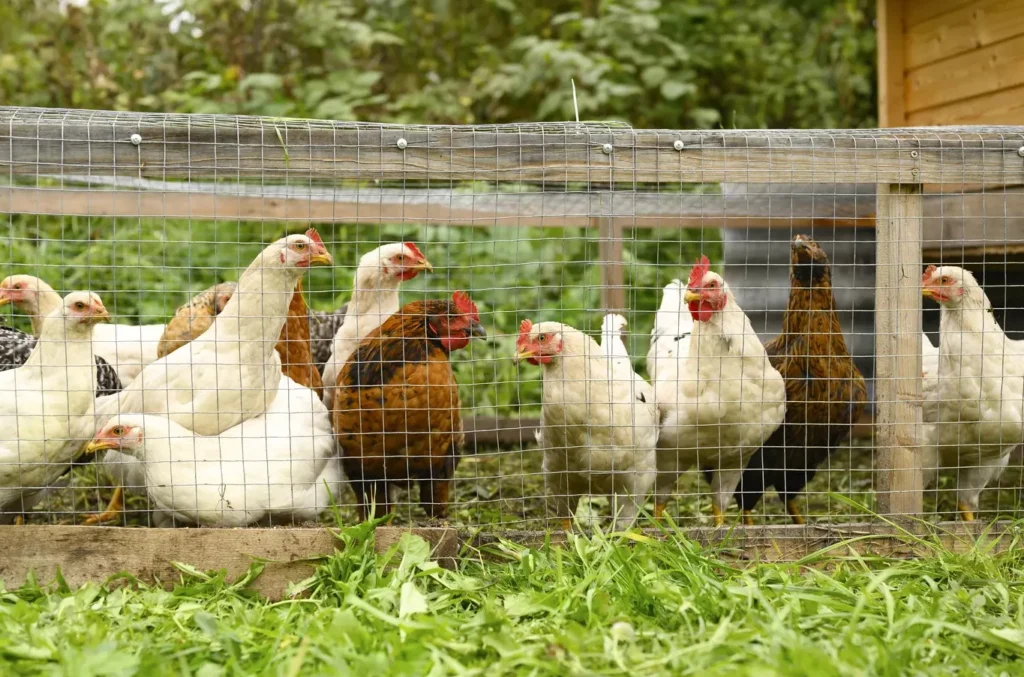
Rabbits
I started rabbits because my daughter wanted a pet. Then I learned they’re great for meat and amazing compost (rabbit poop can go straight into the garden no aging needed!).
- Good for: Meat, compost
- Downsides: They escape easily. I once found mine sittin’ on the porch like it paid rent.
- Tip: Keep wire buried in the ground they’ll dig out like little furry escape artists.
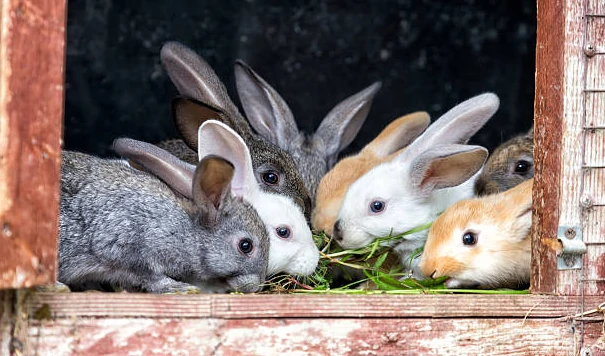
Quail
Tiny but mighty. These little birds are quiet (great for urban areas), and lay cute speckled eggs that taste just like chicken eggs.
- Good for: Eggs, meat
- Downsides: Need protection they’re fragile
- Tip: Raise them in wire bottom cages so cleaning is easier.
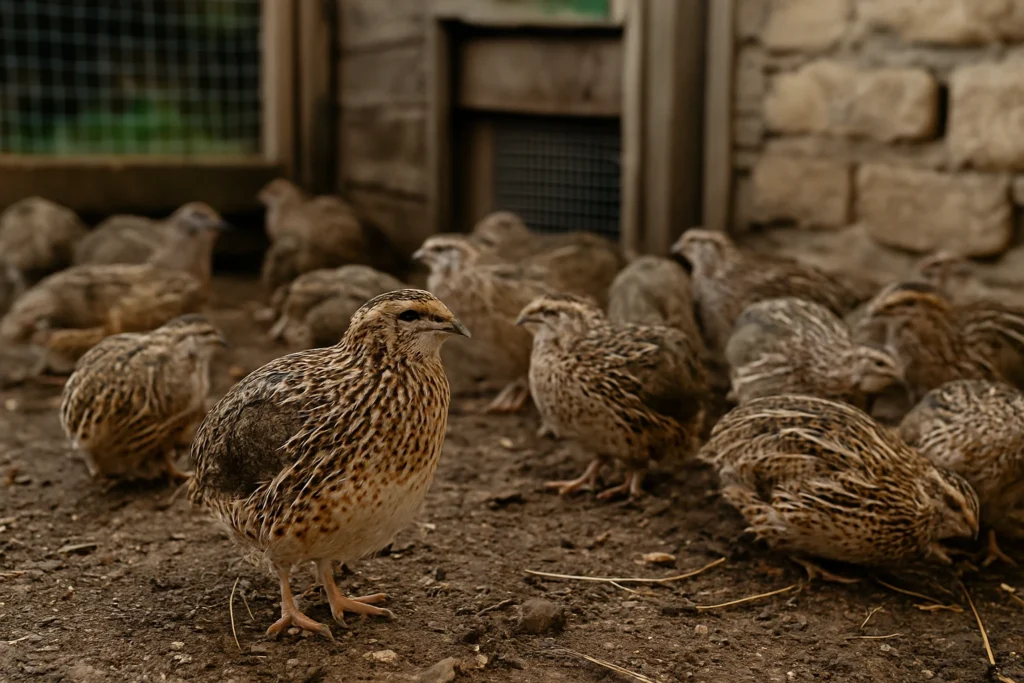
What You Really Need Before You Start
I started with a dream and a bucket of feed. That was… not enough.
Here’s what I wish someone told me before I brought home animals:
1. A Plan (and Probably a Fence)
Your backyard needs zones. You can’t just plop animals anywhere.
- I made the mistake of keeping chickens right next to my garden beds. Took me a week to realize they were scratchin’ up my seedlings like a buffet line.
2. Water Access
I spent MONTHS dragging a hose across my lawn every morning until I finally installed a cheap rain barrel with a spigot. Total game changer.
3. Proper Shelter
Animals need shade in summer, warmth in winter, and something that’ll stop predators. I once lost two hens to a raccoon that pulled the wire off my coop roof. Still feel bad about that.
How Much Does It Cost to Raise Backyard Animals?
Honest answer? It depends. If you build everything from scratch and use salvaged materials (like I did), you can do it cheap. But feed costs add up.
Here’s roughly what I spend each month:
- Chickens: $20–30 for feed
- Rabbits: $15 (plus hay, if you buy it)
- Quail: $10–15
You can cut these costs by fermenting feed, growing fodder (like sprouted grains), and letting animals free range when it’s safe.
My Biggest Backyard Animal Mistakes (So You Can Avoid ‘Em)
You’re gonna mess up. I sure did. Here’s three of my worst ones:
1. Built a Coop with No Ventilation
Thought I was keeping ‘em warm. Instead, I nearly choked ‘em with ammonia buildup from poop.
Tip: ventilation is more important than insulation.
2. Didn’t Check the Local Laws
Got a nasty letter from code enforcement because my first coop was “too close to a neighbor’s fence.” Always, always check city rules first.
3. Overcrowded the Coop
More chickens means more eggs, right? Nope. It means stress, pecking, and way more poop than you want to clean.
Mini FAQ Honest Answers From a Guy Who’s Tried It
Q: Can I start with just a few animals?
A: Heck yes. I started with 3 hens and a dream. Even that made a difference.
Q: What do I do with all the poop?
A: Compost it. Chicken and rabbit poop are gold for the garden just age the chicken stuff a bit first.
Q: Is it legal in the city?
A: Depends. Most cities allow a few hens, no roosters. Just check first better safe than sorry.
Daily Life on My Backyard Animal Farm
Here’s what my mornings look like these days:
- Feed the animals (chickens first they squawk the loudest)
- Check the water barrels
- Collect eggs (if the hens are feelin’ generous)
- Rake out bedding, toss scraps
- Take a moment to just listen birds chirping, animals rustling
It’s not glamorous. Sometimes it stinks (literally). But it’s peaceful, it’s honest work, and it reminds me what matters.
Would I Do It Again?
Even with the poop, the noise, the neighbor complaints (we worked it out), the escapee rabbits, and the learning curves I’d start a backyard animal farm again in a heartbeat.
It taught me patience. Gave me better food. And best of all? It connected me to the land, even in the middle of the city.
Got questions? Ask away in the comments I really do answer. If I don’t know, I’ll tell ya. If I do, I’ll tell ya straight. No fluff.
If you’re dreamin’ of starting your own backyard animal farm just start. Doesn’t have to be perfect. None of us got it all right at the start.
But we tried. And we got better. You will too.
Keywords used: backyard animal farm, homesteading, chickens, rabbits, quail, backyard, compost, off-grid, garden, urban homestead, DIY, self sufficient, food storage, permaculture

